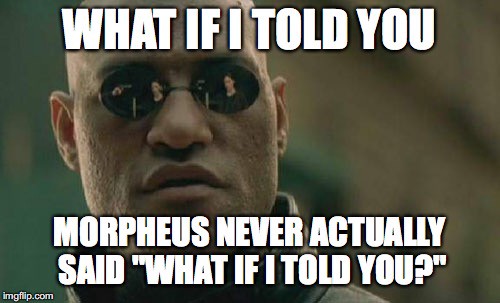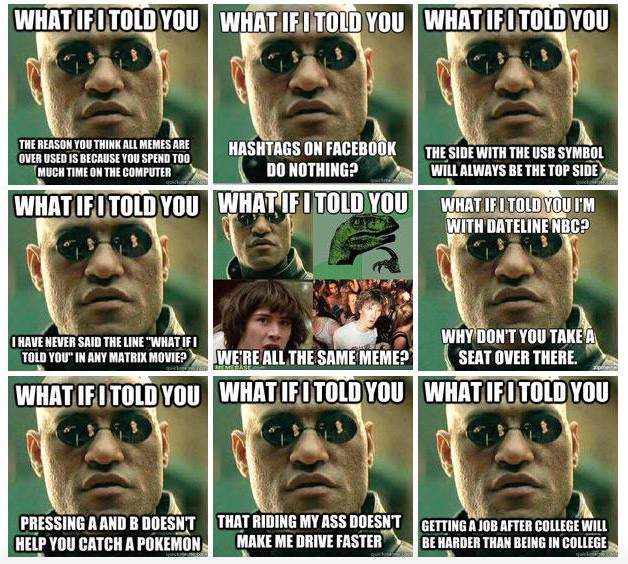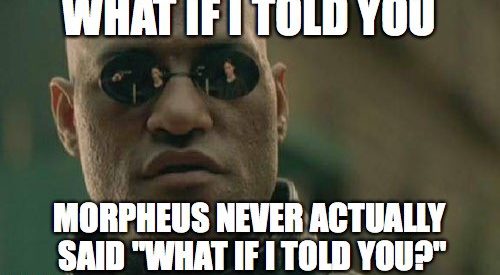
We?ve probably all seen this meme of Morpheus played by Laurence Fishburne from the movie The Matrix. In the film Morpheus has a ?teacher role? and reveals the true nature of reality to Keanu Reeve?s character, Neo. The meme has been in use since 2012 often as social commentary noting a common observed truth. I?ve also seen it in use in PowerPoint presentations. A simple search via Google reveals the sheer number of Morpheus memes there are out there:

However, the truth is that Morpheus never actually says the line, ?what if I told you? in the film. Despite this, people who have seen it may say that they remember the line from the film and not from a meme often in this scene:
How about Darth Vader when he reveals he?s Luke Skywalker?s father in the film ?Empire Strikes Back?? Chances are you?re thinking ?Luke, I am your father?, when he actually says, ?No, I am your father.?
And if I asked you what the Queen in ?Snow White? says to her mirror? Did you think ?Mirror, Mirror on the wall?? Wrong again. It?s ?Magic mirror on the wall.?
This phenomenon of commonly reported false memories is known as ?The Mandela Effect? due to a large number of South Africans recalling that they heard news of the death of Nelson Mandela in the 1980s despite the fact he went on to become their president in 1994 and actually died in 2013. Searching for the Mandela Effect will bring up pseudoscientific websites who explain the phenomenon as multiverses mixing together. Psychologists would describe it as confabulation and it?s incredibly common. It?s been shown in studies that subjects will falsely recall a certain word (sleep) if they?ve been hearing related words (tired, bed, pillow etc). In another study participants were told of 4 events that happened to them aged between 4 and 6; three of them were real and one (getting lost in a mall) was false. 25% of participants stated that they could remember the false memory and even elaborated and embellished giving new details they ?remembered?. In another experiment participants? recall of a witnessed car crash was affected by the way they were questioned. If they were asked ?what speed were the cars going when they smashed?? they tended to recall a much faster speed than if they were asked ?what speed were the cars going when they contacted??
We all rely on our memories to help make us who we are and establish the values we have. It is important to be aware of how our recall and that of our patients may be affected by context or other factors we may not be aware of.
No one is easier to fool than yourself.
Thanks for reading.
– Jamie
Originally published at mcdreeamiemusings.com.


